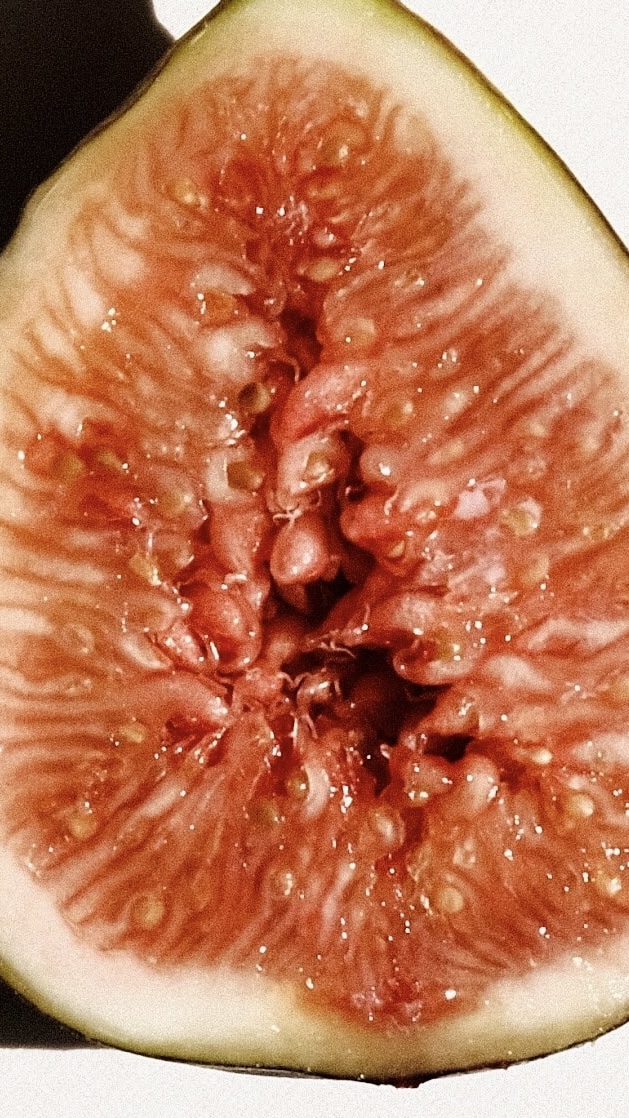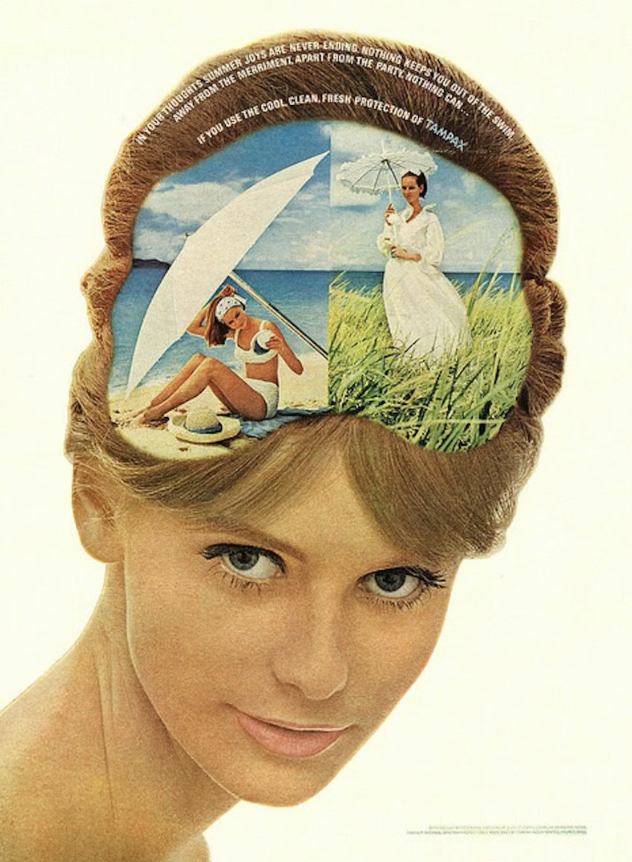Italian, being a romance language as it is, is not afraid of an elaborate metaphor or a flowery phrase. Italians are a passionate people, and for as many ways there are to say “I love you” there are somehow even more ways to wax poetic about something even more seductive, even more (somehow, still) mysterious: the vulva.
Every Italian dialect has its own little euphemism–some sexy, some crude, some best used as expletives, some best used in the bedroom. Reddit even published a map to illustrate just how illustrious Italians are when talking about pussy, from farfallina (butterfly) to fica (fig) to patatina (little potato). As a cis-woman and a lesbian, I get the butterfly comparison (visually speaking) and the fig one (those fruits have been equated with sensuality, juicy and ripe as they are, since biblical times). Patatina throws me for a loop. But those are just the most common ones. There’s also castagna (chestnut), carcioffola (little artichoke); both fairly innocuous, and keeping to a strong trend of equating vulvas with food… insert the inevitable “eating out” joke here. But not all of these euphemisms are food-based. There’s cunnu, a Sardinian term deriving from the Latin cunnus, meaning “cut” or “gash” (frankly, awful); anglophones will recognize this root word from such familiar terms as “cunt” and “cunnilingus”. Sidenote: makes you wonder who named the province of Cuneo, and what exactly was going on there.

Back in 1832, Roman poet Giuseppe Gioacchino Belli wrote a sonnet wherein he rattled off over 50 different euphemisms for vulva, and not all of them flattering: fessa (crack), fessura (fissure), buca (hole), grotta (cave). The gist of it is that there are many ways to call said organ, but polite men should choose the polite terms and ask nicely for sex (mind your pleases and thank yous, boys). Which I guess for 1832 was progressive?
Italian is far from the only culture to have pet names for female genitalia, but as I started to learn more and more of these turns of phrase–and learn more and more Italian in general–it became apparent that in Italy, they will call a vulva by literally anything other than its name, which, for the record, is also vulva in Italian. Even my local pharmacist used the word “intimo” meaning “intimate area” rather than vulva or vagina when I went in to ask about medication for a yeast infection. It seemed to go beyond the whole rose by any other name thing, and enter into the territory of cloak and dagger shame.
To be sure, Italy is not alone–even in the Western world–in attaching historical shame to female bodies and their constituent parts. If you’ve gotten this far in this article, I probably don’t need to be the one to tell you that throughout history and well into the present day, female bodies have been vilified, gatekept, and policed. Sex education programs are being defunded at alarming rates across the US and the UK. In Europe, Italy is one of the only countries not to have a compulsory sex education program in schools; 8 out of 20 Italian regions opted out of teaching this subject entirely, while the remaining twelve do so primarily through the lens of marriage and family planning. Italy is still a country deeply rooted in Catholicism, and though more and more young people do not define themselves as religious, there is still the looming specter of the Vatican and its influence that is felt here, which seeps much deeper into the social and cultural climate than most would probably think. Feminist issues like abortion discourse and LGBTQIA+ rights very much lag behind here, while traditional gender roles are held up on a pedestal, reinforced by the stark realities of economic crisis and lack of opportunity for women to emancipate themselves financially and socially. It is not just the language around sex–especially the sexuality of women and those assigned female at birth (AFAB)–that’s hush-hush here, it’s the whole affair. When the female body and sexuality are spoken about aloud, the discourse is almost always in the hands of men. Men’s voices are the ones heard loudest in the media–the #MeToo movement doesn’t seem to quite have taken hold here as much as it did elsewhere. One hundred and sixty years after Belli published his sonnet, Roberto Benigni more or less missed the point entirely when he went on stage in a now infamous clip from Fantastico with Raffaella Carrà, chased her, jumped on her, and then proceeded to beg her to show him her genitals–citing Belli’s sonnet along with some creative terms of his own–while tugging at her dress. But, it was 1991, and it was Italy, so these antics just further endeared him to fans, and Carrà had no choice but to laugh it off and go along with the joke.

Roberto Benigni and Raffaella Carrà
More recently, in 2020, Nuvenia–a company that makes menstrual products–conducted a survey in tandem with a TV ad they ran. The study found that a truly shocking 1 in 5 people–not men, which would have been bad enough, but PEOPLE OF ANY GENDER–between the ages of 18 and 65 could not identify where the vagina was. Only 31% of this same demographic knew that the vulva and the vagina were two different things (for those reading, let me save you the trouble of panic googling: the vulva is the outside, the vagina is the actual canal bit). Taking this all into account, it’s really mind-boggling how Italians have earned a reputation internationally for being good lovers. If they can’t locate their own or others’ vaginas, I fear that doesn’t bode so well for the clit or g-spot. Moreover, 45% of people didn’t feel comfortable talking about their vulvas or vaginas, and 34% were embarrassed of them. Again, not a great omen for a satisfying sex life, let alone claiming one’s own agency when it comes to things like healthcare, pregnancy and birth, and both physical and mental wellness. Women’s and AFAB folks’ pain and pleasure are universally disregarded enough, we need to be able to be our own advocates.

Nuvenia's commercial Viva La Vulva
Nuvenia’s idea was to try to empower its target demographic of menstruating people by finally speaking the truths of the matter aloud. It showed, for the first time on Italian television, images of real-seeming blood on a sanitary pad, alongside clips that, while not of actual vulvas, heavily referenced them (butterflies and figs included), set against the celebratory soundtrack of Camille Yarbrough’s “Take Yo’ Praise”. And while the marketing powers-at-be and the country’s more progressive feminist and LGBTQIA+ groups loved it and Nuvenia received widespread industry accolades, it was met with shock and horror by the Italian populace at large. Women, more so than men, were aghast at the imagery, likening it to a “horror film” and complaining that their dignity and intimacy had been violated (as per the clips’ YouTube comments). The very people that Nuvenia sought to empower by taking menstruation and vulvas out of the proverbial closet did not want to be outed, so to speak.
Considering all this, it’s pleasantly surprising that so many of the euphemisms for vulva are actually quite nice–butterflies are fairly universally regarded as beautiful, and figs are delicious as hell. I’ve rarely met anybody who doesn’t like a potato. Imagine if we all stopped being ashamed, and started looking our pussies in the eye and gave them the credit they deserve for being the beautiful, delicious, powerhouses that they are? There is certainly a long way to go, in Italy and everywhere, to achieve any kind of universal self-love. But, maybe the first step is calling her by her real name.


